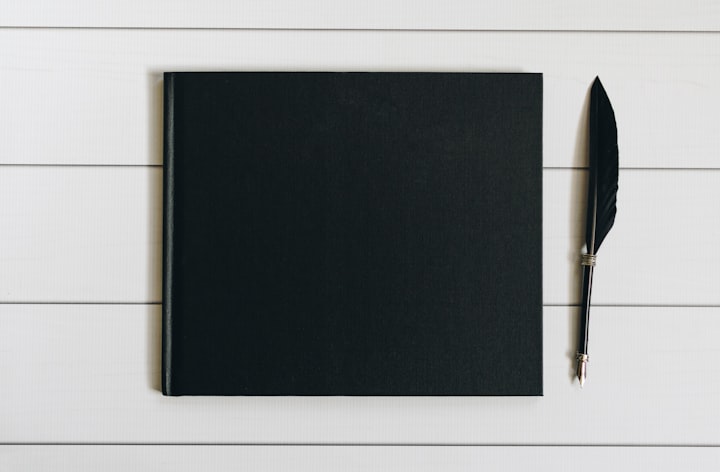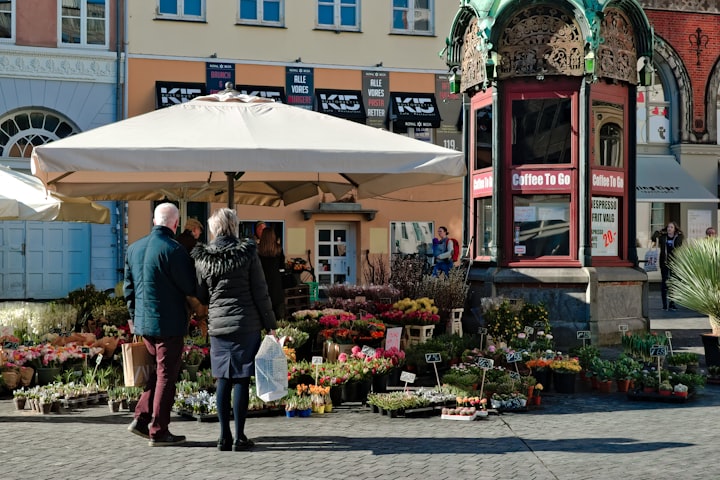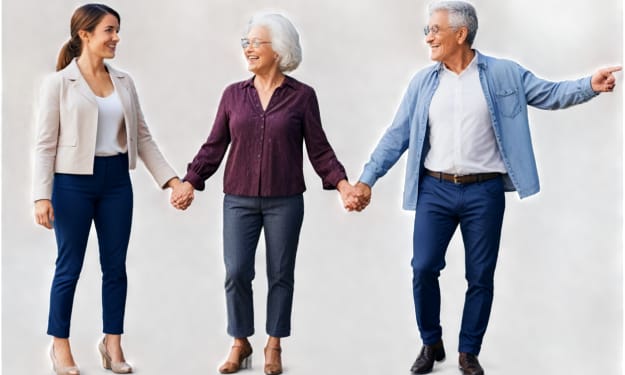
"Donna Smith died," Bill said when I sat down at his table. "If that was her real name."
It was a long running joke of his—almost a term of endearment between two solo residents of this senior high-rise. Donna enjoyed my brother’s sense of humor and always laughed when he said that same, tired, line.
Before he lost most of his eyesight, they had been Wednesday night Rummikub partners. They typically rode the bus together when residents traveled to the symphony. And, although she sat with other people at dinner, she often joined my brother for dessert. Their easy bond was rooted in personal history—his years in the Air Force and her career as an Army nurse. She, like my brother, had been stationed in Guam, Thailand, and Germany—nearly a decade earlier—but cities and scenery changed little over those years. People in retirement communities seem to be drawn together by common sense-of-place memories. Examples of this connection were evident throughout the dining hall. Eight residents in this south Texas facility grew up in Indiana.
Though Bill repeated his lame joke each time he saw her, he was usually wearing a grin. Not today, he had lost another friend—the third this year, two of whom had been regulars at his table. My blind, disabled brother was clearly grieving. Though I had only known Donna casually, and only for two years, I shared his sadness.
“I’m sorry, Bubba.” I said, patting his shoulder as I circled choices from the paper menu.
“She was ready.” He stirred his coffee as he said it. “She had been ready for a long time; and it must have been easy. When she no-showed for breakfast, the new guy in security checked on her and—”
Cheryl arrived and took the seat on the other side of Bill saying, “Sorry to hear about Donna. Was it her heart?”
He gave a half nod.
“She had no family? Is that right? Nobody?”
I mentioned she told me she had been married once, long ago, for a short period of time.
“Did he die?’ Cheryl asked.
I opened my hands and shrugged.
Dinner arrived; we ate without conversation. But over dessert her absence became palatable. “No children,” Cheryl said, shaking her head, “And her cat died last month. But what about the nephew who used to take her on trips every autumn?”
“COVID,” Bill said. “She paid for those trips; he told me so. Nice guy.”
“Where did her money come from?”
Bill glared at her as only a nearly blind man can.
Cheryl looked embarrassed, but added, “I don’t mean to be indelicate, but she only had an Army pension, as far as I know, and a small money market account—we used the same broker. Even one of those expensive trips would have stretched my budget.”
Bill flagged a server for another cup of coffee, then said, “Maybe she had a sugar daddy.”
My brother was relentlessly in search of a sugar daddy for me.
Cheryl giggled, then said, “What will they do with her things, and with her?”
Bill pulled a sheet of paper from under the seat of his rolling walker and handed it to me. The printed notification was a formal sympathy announcement from the director of the facility. Donna had been cremated; the chaplain would read a memorial service for her that afternoon.
“She wanted me to throw her askes into the sea,” he said, sliding the notice from in front of me toward Cheryl. Then turning to me with moist eyes he asked, “Will you take me over to the island next week?”
“Of course.”
Cheryl picked up the notice and read, “It also says that everything in her apartment is to be sold and moved out as soon as possible so they can rent it.” She slid it past Bill and back to me saying, “Why don’t you take it? She would have loved for you to have her place. You might as well move in here--save wear and tear on your car. Her unit has a great view.”
I thought about it all night as I rattled around my beautiful condo—filled with heartbreakingly wonderful memories. I had been a lucky wife; my husband and I had a happy marriage. But after ten years of widowhood, with no children, the beautiful, spacious mausoleum of our dream home had become oppressive. My soul screamed to downsize. My shrinking accounts could use an injection of cash. And I needed to be near my brother, to help him with his insulin and medications, and to cherish our closeness—while there was still time. I stood on my balcony for a few moments, listening to clink and splash of boats in the marina below, and watching the last rays of sunlight kiss the bay. The joy it brought me in the past was gone; I felt empty.
At nine o’clock the next morning I called the marketing office and learned they would open Donna’s apartment after lunch—to start selling her things. The proceeds of that sale were to go to the employee Christmas bonus. I also learned they were eager to rent her space.
As Cheryl had said, the view was terrific—a slightly different angle than from my condo balcony—but there only the living room had a view. Here I would also be able to see the bay from my bed; and my brother would be right next door.
The decision was a no-brainer.
“I’ll take it,” I said to the marketing director.
“Wonderful,” she said. “I’ll get the paperwork ready for you as soon as the sale is over. Look around, put these tags on any of the furniture you want.”
I took them from her and tagged a small cocktail bar, then browsed the built-in bookshelf next to the galley kitchen. Donna had been a history nut, as am I; her collection of travel books and historical fiction was impressive. My tower of must-haves cluttered the on the kitchen counter.
A thin black spine with no lettering caught my eye. It was sandwiched between a thick leather-bound copy of Outlander and a three-volume set of books about America’s National Parks. I considered adding the entire shelf of offerings to my pile. Instead, I slid out the little black book.
It felt good—this little black notebook—just a bit larger than my hands, with a light texture on the cover that seemed to want to be touched. I flipped it over and noticed, pressed into the bottom of the back cover, the word, Moleskine. With my eyes closed, I rubbed my palms against this notebook, pondering the name, then slid the black elastic band off the edge and opened it. Tiny print on the top of the title page read: “in case of loss, please return to:”
No name was written in that space. It belonged to nobody. I turned the page, expecting to see lines like those in the red journal I bought after my husband’s death. Though I had no idea where that journal was today, I had relentlessly poured my grief into it the first year after he died.
This notebook had no lines; I could sketch in it as well as write. The pages were blank, and soft, and empty—as if waiting for me.
I slid the brownish-grey ribbon up to open the book and noticed it was not in the middle, as I would have expected, but near the beginning.
Someone had opened this notebook and then deliberately moved the place-holder ribbon.
Why?
I laid the notebook on its back and let it fall to its natural state of openness, where the place-holder ribbon would have been, should have been. Blank. Then I opened it with the place holder ribbon, near the front cover. These pages were also blank.
Curious, I flipped each page forward until, near the back cover, I saw, in large letters, written with what appeared to have been a shaky hand, were the words:
"Say Nothing."
The page practically turned itself. Behind it, drawn badly, were two large cartoon-like eyes, with eyebrows arched into a point, and black eyeballs looking down and to the right. I looked in that direction. The only thing there was the return-air grate.
Is something hidden inside that grate?
“Do you journal?” The marketing director said as she plopped a stack of forms on the kitchen counter. “I think that is a brand-new notebook.”
Startled, I snapped it shut and slipped the elastic band around it. “Long ago,” I said, “and I might start again. How much for the books?”
“Two dollars each, unless you sign a lease, then you can have all of them—no charge.”
She finally left, at four-thirty, handing me the keys to my apartment. I locked the door behind her and pulled a dime out of my purse to loosen the screws on the grate. The screws were already loose.
By tilting the grate down to the floor, I was able to peer inside. Lying on the floor to the right of the intake draw was a zip-lock baggie with envelopes inside—bank envelopes!
I grabbed the baggie, carried it into the kitchen, unzipped it, then removed ten envelopes and opened one—then the others—pulling out twenty, one-hundred-dollar bills from each.
Twenty-thousand dollars lay in front of me on the grey granite countertop. The bills were not in sequence, they were not printed the same year. Some were crisp and new; others were wrinkled and old. I glanced around the living room to be sure nobody was within earshot, then quietly said, " What is going on here, Donna?”
Then I looked back down at the two-hundred, $100 bills in front of me and remembered the words in the little black notebook:
Say Nothing.
She had hidden the money in the grate, knowing that someone would find it, maybe that same person would find the notebook....and maybe not. She had provided no answers to the question of it's source. And yet, it was impossible to think she had come by it dishonestly.
I examined the baggie. It was worn; she had opened and zipped it back many times. I wondered how much money had originally been there and what she called her cash stash. I hoped it had brought her joy to spend, and a secret pleasure to hide as she faced her final days.
The alarm on my phone rang, it was almost time to escort my brother downstairs for dinner and this apartment would soon be abuzz with maintenance people and housekeepers, making it ready for me. I could not leave this windfall here.
I packed the money back up exactly as I found it, wondering if I would ever learn why she kept this pile of cash and hid it in a place so easy-to-find. In my mind I could see her pleasant face and easy smile. The money had been Donna’s little secret. It would be mine.
I tucked the bank envelopes back in the baggie, zipped it up, and squeezed it into the inside pocket of my handbag, then locked my new door and knocked on my brother’s.
“Are we neighbors?” he said as I led him to the elevator.
“Yep.”
“Did you find anything interesting in her apartment?”
I gasped, then coughed to cover for it and said, “Some pretty good reading material.”
About the Creator
Evelyn Donahoe
A writer, career marketing professional, widow and caregiver who no longer has red hair, but still sports the attitude.






Comments
There are no comments for this story
Be the first to respond and start the conversation.